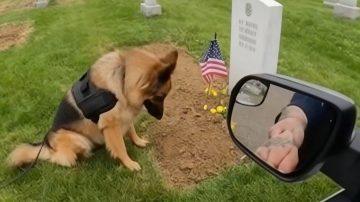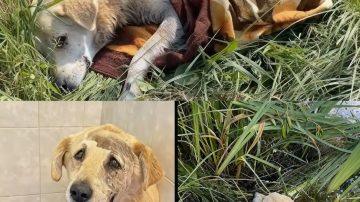The image before us, a small, vulnerable puppy with wide, pleading eyes, speaks volumes without uttering a single sound. It’s a stark reminder of the countless innocent lives that, through no fault of their own, find themselves in desperate situations. This little one, likely abandoned or lost, represents a fraction of the immense animal welfare challenge faced globally. Its slight frame, the hint of trepidation in its gaze, and the makeshift bedding beneath it paint a poignant picture of fragility and an urgent need for intervention. This scenario is not unique; it’s a daily reality for animal shelters, rescue organizations, and compassionate individuals who dedicate their lives to protecting these defenseless creatures. The journey from this state of vulnerability to one of security, health, and ultimately, a loving forever home, is often long and arduous, demanding significant resources, unwavering dedication, and the collective empathy of a community. Understanding the critical role of puppy rescue, from initial intake and medical care to rehabilitation and adoption, is paramount to addressing this widespread issue and ensuring that every paw has a chance at a brighter future.

When a puppy like the one in our image is brought into a rescue environment, the immediate priority is always its health and safety. These young animals are particularly susceptible to a host of medical issues, ranging from malnutrition and dehydration to parasites, infections, and communicable diseases. A thorough veterinary examination is the first crucial step, assessing their overall condition, administering necessary vaccinations, deworming, and treating any existing illnesses or injuries. This initial medical intervention is often intensive and costly, requiring dedicated veterinary staff, medications, and sometimes even surgical procedures. Many puppies arrive with visible signs of neglect or trauma, further complicating their care. For instance, the puppy in the photo, while appearing somewhat stable, could be suffering from internal parasites or early stages of an infection that isn’t immediately apparent. The rapid and effective deployment of medical resources can be the difference between life and death for these fragile beings.

Beyond immediate medical needs, proper nutrition and a safe, comforting environment are fundamental to a puppy’s recovery and development. Puppies require specialized diets that support their rapid growth and provide essential nutrients. Access to clean water, regular feeding schedules, and a warm, clean place to rest are basic necessities that are often overlooked or unavailable to abandoned animals. The environment provided by rescue organizations aims to mimic the stability and care they would ideally receive from a mother dog, offering a sense of security that helps reduce stress and promote healing. This often involves individual kennels or foster homes where they can receive one-on-one attention and continuous monitoring. The puppy in the initial image, with its small bowl of kibble, highlights the vital importance of consistent nourishment, a simple act that underpins its journey back to health.

Socialization and behavioral rehabilitation are equally important aspects of puppy rescue, especially for those who have experienced trauma or a lack of positive early life experiences. Puppies learn critical social cues and develop their personalities during their formative weeks and months. Rescued puppies, particularly those found alone or in challenging circumstances, may exhibit fear, anxiety, or even aggression due to their past experiences. Rescue workers and foster parents dedicate significant time to gentle handling, positive reinforcement training, and gradual exposure to new sights, sounds, and people. This process helps them build trust, overcome anxieties, and learn appropriate behaviors, making them more adaptable and appealing to potential adopters. The shy demeanor of the puppy in the opening image suggests a need for patient and understanding socialization efforts to help it blossom into a confident companion.

The ultimate goal of any puppy rescue effort is to find these animals loving, permanent homes where they can thrive. The adoption process is meticulous, designed to match each puppy with a family that can meet its specific needs and provide a lifetime of care. This often involves detailed applications, interviews, home visits, and extensive counseling to ensure that adopters understand the commitment involved in raising a puppy. Rescue organizations also emphasize the importance of spaying or neutering adopted animals to help control pet overpopulation, a root cause of so many abandoned puppies. The image of a puppy, once alone and vulnerable, now playing joyfully in a home environment with children, perfectly encapsulates the transformative power of adoption and the fulfillment it brings to both the animal and its new family.







